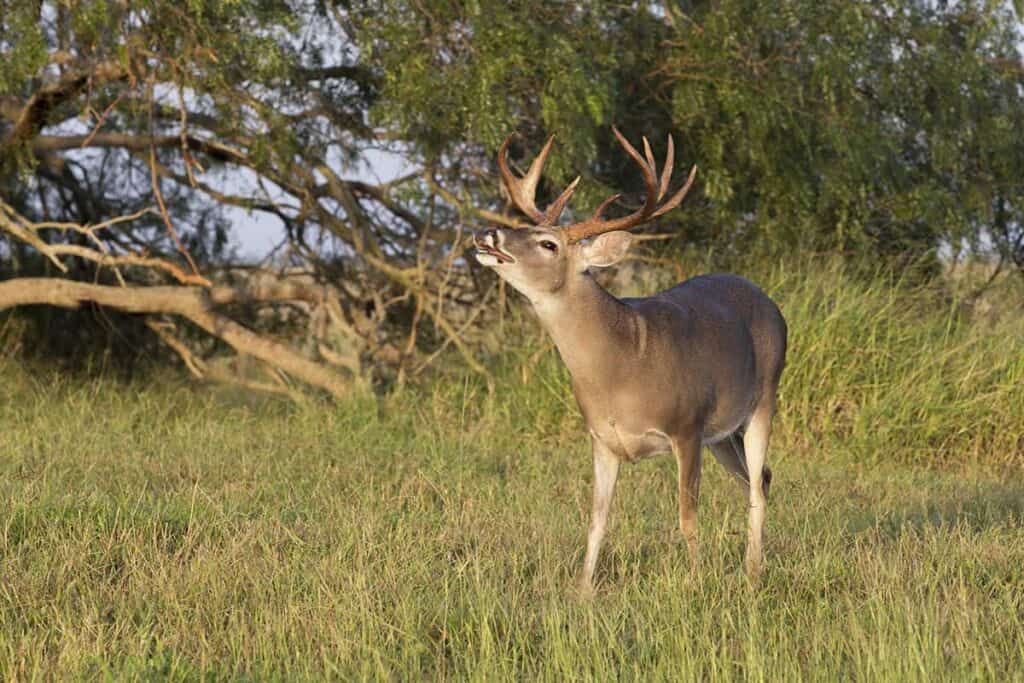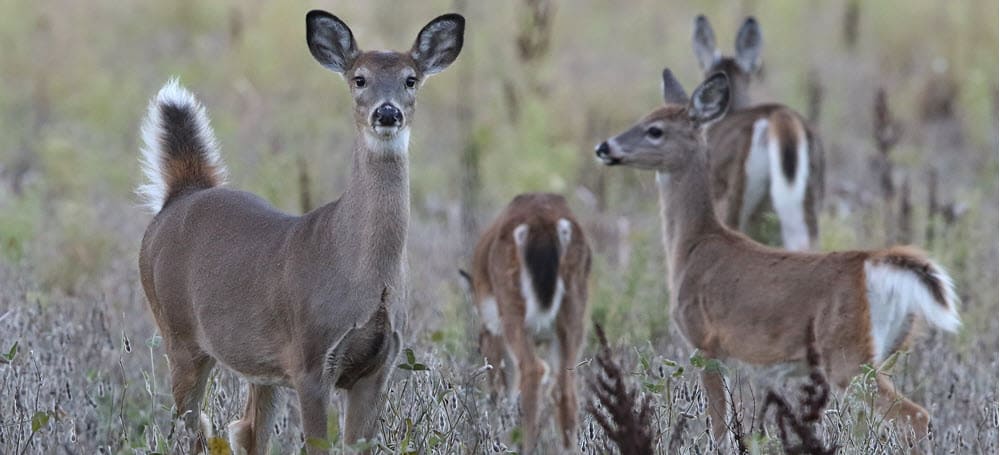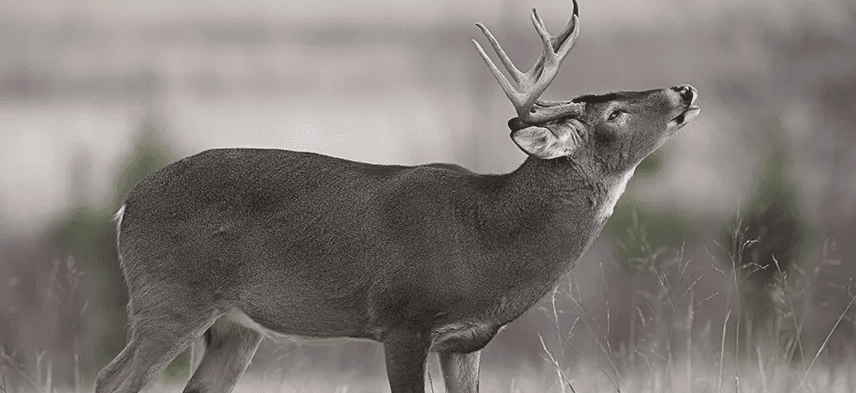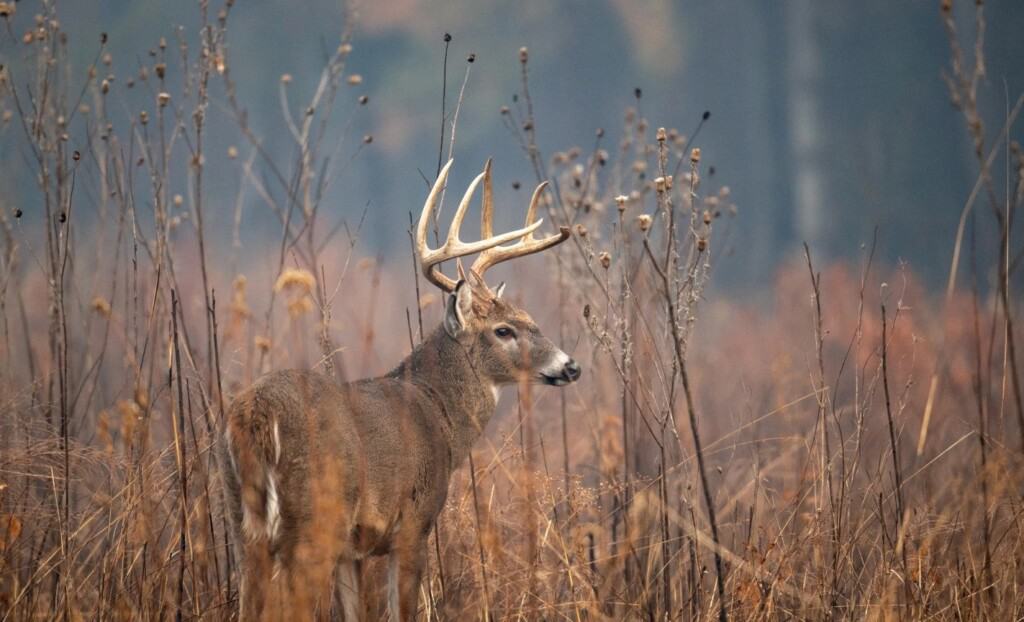Scent control is a subject of friendly debate and an incredible niche in the hunting industry. Some hunters bathe head to toe in scent-blocking soap and use all kinds of scent-blocking detergents and sprays. Others couldn’t be bothered to use anything different than their everyday soap and choose to just play the wind instead.
The deeper you dive into the topic of scent control, the more complicated it gets. I’ve found that a combination of some simple strategies is the most effective, paired with a good understanding of how holistic scent control actually works.
In a way, you can categorize your approach to scent control into the bare necessities, good practice, or going the extra mile. I go into more thorough detail about these in my ebook, The Hunters Guide to Scent Control. I am going to focus on the main topics here, but if you want all the little details and tips, check out the book here.

My Routine in a Nutshell
I will explain the how and why of my routine later in this article, but here I’ll be more straightforward. I admit I’m not one to spend hundreds on ozone generators or special carbon clothing, but I do have my best practices. My routine may change depending on the type of hunt I’m going on too, its all about how much effort you want to put into it.
Close Hunts
If I’m hunting super close to the house, either walking from the back porch or driving a few minutes down the road, I’ll have a simpler routine than a multi-day hunt. I will still wash my hunting clothes in scent free detergent. I don’t think this is a step you can seriously skip. However, I’ll usually leave them in my dryer after they’re done and just grab them and go in the morning.
I like showering at night, personally, so I’ll use my scent-eliminating soap and shampoo then. Best practice would be to shower in the morning to avoid collecting smells from your bed or any pets you might sleep with, but waking up early to do that usually isn’t in the cards for me when I hunt close to home.
I spray down all of my gear, boots, outer layers, and any other gear with scent eliminator spray and hang it outside for the night. This prevents them from reabsorbing smells from the house (yes, even a closet).
In the morning, I’ll get dressed, and head out without stopping through the drive-through or gas station for breakfast. Adding all that scent to your clothes is just asking for deer to bust you. I’ll either eat before I leave the house or bring a snack with me for later.
Did You Know I Had a Newsletter?! 📬
I do! I send out a weekly email that talks all about deer hunting and is a bit more personal than a regular article. If you sign up right now, I will even send you the first chapter of my Ebook “The Hunters Guide to Scent Control” for free! What is there to lose? 🙂
Multi-day Hunts
Packing for a multi-day hunt away from home is a little different. I’ll pack my changes of hunting layers in airtight bags or containers. I absolutely won’t wear my hunting clothes out to eat when I head back into town for the night either. Even if I’m only in a store for a short time, those small exposures will compound.
If I can, I’ll keep my outer layers outside wherever I’m staying or in an airtight container in my truck overnight, just like I’d do at home. If I’m on a long hunt, say a few days or a week, and I’m camping, I’m going to expect my base layers to soak up a lot of body odor after multiple days of wear. I’d try to keep a separate airtight bag to keep them in when I change, and bring plenty of scent free replacements.
If you want to make a scent control routine tailored to you, check out The Hunter’s Guide to Scent Control where I walk you through how to do that step by step. Plus, there are plenty of tips that I didn’t have the time to include in this short article, but the eBook has it all!
Scent Control Personal Hygiene
Personal hygiene and your own personal gear are the things you have the most control over with scent management techniques. Choices of what you use to wash yourself with, the type of food you eat, or how you store and transport your gear are all areas that have relatively easy fixes to help significantly reduce scent when hunting.
Hygiene
Everyone has a smell, whether it’s mixed with our favorite smell-good soap or not. Skimping on showering products during a scent control routine makes it difficult for other scent control options to be nearly as effective, especially if you’re hunting in a warmer area.
I highly recommend a good shower the morning of or the night before hunting using scent-eliminating soap; there’s even special shampoo for the occasion too. Some places sweat more and will benefit from some extra attention.
Since hair acts as a favorable environment for odor-causing bacteria, the theory of shaving almost everything you can to reduce scent might track logically. However, it may be considered a bit extreme to shave your armpits, head, beard, etc. Some die-hards swear by it, but I’m not one to shave down that much just to go hunting.
I find that using a good quality scent-e\liminating soap or body wash, showering the night before (if I’m going hunting in the morning), and shaving what I’d typically shave for a normal day hits all the big marks enough without going too overboard.
Clothing and Gear
Have you ever noticed how everyone’s home has a certain smell? Sometimes even people’s clothes? It may or may not be a detergent-specific scent, maybe it smells like that person’s 15 cats, or maybe it smells like the bacon they just cooked this morning.
The point is, clothing and gear will acquire a smell in your house unless you keep it in an air-tight container. Washing and drying your clothing with regular detergent, fabric softener, or even lint sheets can cast a very obvious scent. You don’t necessarily have to use a scent-eliminating detergent, but at the very least, use an unscented detergent.
Everything from your boots, socks, even underwear, and a hunting pack can hold a smell when you keep it in a closet or mudroom. I usually keep my less frequently-used gear in an airtight container after washing it with a scent-eliminating detergent. For my gear: boots, packs, and anything else I might be packing on my hunt, I’ll spray it down with a scent eliminator spray. I’ll leave it to hang outside (this is an option for clothing, too, potentially) the night before a hunt.
Something people tend to forget about or ignore with scent control is the actual trip to the hunting location. If you’re hunting a few hours away and wearing all of your gear, it can pick up scents from your vehicle just like it can from your house or pets. Usually, this isn’t so much of a problem when hunting close to home. Regardless, try to keep your outer layer and boots off until you’re hiking in or at your setup location.

Snacks
I know snacks are important, especially for early morning hunts. Avoid rolling through McDonald’s in the gear you spent the past 48 hours trying to de-scent. You’re going to smell like a walking happy meal by the time you make it to your spot.
If you’re one to pack snacks from home, watch what it is you’re bringing. The more smell a snack has (some might even say coffee is in this category), the more likely deer are going to smell it. Avoid stinky foods, dip, or smoking. You will also want to be as quiet as possible while opening those snack wrappers!
Environment
When it comes to your environment, it gets a little harder to control all the variables to keep your scent undetectable. Wind, travel paths, and touching things, in general, all play a part in keeping your smell trail as small as possible. In this area, we want to focus on the things we can control, like our personal scent, the path we take to the stand, and how quiet we are.
The Big Bad Wind
No one can control the wind, but you can control how much scent the wind is able to pick up if you ever have to travel with the wind at your back. I always try to look up what direction the prevailing winds are going to be in the area I’m hunting, but the wind isn’t as important as many people think it is for ambush hunters.
Playing the wind itself as the only “surefire” way to control scent is a hot topic in the hunting community. Do I like to have an idea of which way the wind blows the majority of the time? Sure, but the wind also tends to change frequently when I’m hunting. I’ll be honest with you, I’m not going to move hunting positions when the wind shifts.
I’m not one to just play the wind as my only method of scent control. Anecdotally, I’ve seen more blown hunts from someone smelling like a gas station with the wind blowing out of the hunting area than the wind going the wrong way with a solid scent management plan.
If you want to make a scent control routine tailored to you, check out The Hunter’s Guide to Scent Control where I walk you through how to do that step by step. Plus, there are plenty of tips that I didn’t have the time to include in this short article, but the eBook has it all!
Take the Long Way to The Stand
Take the long way to the stand, I guarantee it’ll pay off. Despite the best efforts to thwart any smell from escaping your scent control plan, it’s still not the best idea to walk the high-traffic areas on the way to the stand. Believe it or not, this is a step I recommend over any other scent control options. As long as you take a shower and wash your clothes, taking an isolated path without doing anything else special to mask your smell can still allow you to go undetected.
On your way into your stand, try to avoid touching brush, trees, and other structures as much as possible. I suggest, if you have to, cut your path into your stand and remove brush, leaves, or general debris. This takes a little forethought, but not only will this minimize how much scent you leave behind, but it can make your entrance quiet, especially in a noisy block of woods..
Scent Control Products
There are so many scent control sprays, washes, and soaps on the market today. Now you can buy whole sets of gear with scent control “built-in” to the fabric. I use a few scent control products myself as part of my routine, but mostly soap and deodorant. Unfortunately, some products are marketed as part of a scent control routine when they really don’t serve the same purpose as a scent eliminator, but more on that in a bit.

Scent Eliminators vs. Cover Scents
Scent elimination and covers scents are not the same. Don’t be fooled into thinking you can cover up your stink with another stink. They don’t cancel each other out. Scent eliminators all work in a relatively similar way, no matter what the brand salesmen say. Either it has compounds that strip and kill bacteria on a cellular level or oxidize any existing odors and grime.
These products can come in the form of soap or body wash, shampoo, laundry detergent, and sprays. I usually opt for a regular unscented laundry detergent for my clothes and use a spray for my larger equipment that won’t fit in the washer.
Cover scents can be debated in terms of efficacy, but they do what their name suggests–covers your scent with another scent. The smells can range from woods to “herd of bedded deer” to apples. Some hunters use these after using a scent eliminator; some use them instead of scent eliminators.
One rule to remember is that stink plus stink just equals extra stink. You can’t smell like a gas station mixed with apples and cedarwood and expect to blend into the environment and remain undetected. Some hunters swear by covers that mimic their surrounding woods, but make sure you do your research on your area. Wearing a cedar scent in an oak forest isn’t necessarily the best choice to blend in with.
Clothing
There’s a serious market for scent-blocking clothes in our world. Many of these garments work with activated carbon-infused textiles, which adsorb bacteria and subsequent body odor. (no, that’s not a typo, it really is adsorption–meaning to collect on a surface rather than soaking into a material)
Other types of clothes have layers of textile that create trap pockets for your odor to be adsorbed and “stored” in a sense, preventing it from permeating the surface of the clothing and creating a detectable scent trail. I like these for my shorter hunts.
You can even get clothes laced with silver or other compounds that kill scent producing bacteria all together. I just have a little bit of a problem with these products. The fact is, they do work, but not for very long. Just about all of us have some hunting clothes or gear that are over a decade old, and it still works great so we still use it. However, these garments last about a season or two before they become a regular hunting shirt instead of a scent killing hunting shirt. For the price, it just isn’t worth it to me.
I go into more detail about these materials and some other scent gadgets in my Hunting Scent Control ebook. Check it out!
Other Scent Control Tips
The basic premise of scent control is to minimize bringing any foreign scents with you to the woods and to stay undetected while you’re there. If it’s unfamiliar compared to what the animals smell every day, it’ll bring attention and potentially bust a whole hunt. Believe me, I’ve experienced it.
Eliminating breath odor might be in your favor as an added step to hygiene. Again, some swear by it, but this is debated. Nonetheless, you might want to reconsider vaping, smoking, or dipping while you’re out on a hunt. These have pretty stark scents to human noses, and you can bet they’ll be picked up even easier by deer.
One thing that doesn’t seem to be picked up by animals, contrary to popular belief, is urine. Feel free to let loose in the great outdoors instead of packing in empty bottles–the deer really don’t seem to mind. The same premise doesn’t necessarily apply to the number two experience; you might want to make sure you head home for that one.

What’s Best for Me?
At the end of the day, there are a million and one scent control routines you can make for yourself and all kinds of money you can spend. There are a few basic practices that can give you a good advantage out of the starting gate. After seeing how a hunt or two goes, you may pick up a few more tools to really make your routine air-tight for your area.
Figure out what works best for you. It might be worth it to spend a little more money on quality gear rather than gallons of scent-eliminating spray. You also might be in a place where you want to try some of the higher-tech gadgets or clothing for your bigger hunts.
If you want to make a scent control routine tailored to you, check out The Hunter’s Guide to Scent Control where I walk you through how to do that step by step. Plus, there are plenty of tips that I didn’t have the time to include in this short article, but the eBook has it all!
Closing Thoughts
While each hunter might have their own unique routine for scent control during hunts, don’t forget to practice good entry and exit tactics to and from your stand. All the scent control in the world won’t fool some deer. Although a good scent control routine will fool most deer.
It can be easy to hyper-focus on one sense in particular and then almost forget about the others. Deer don’t have those huge eyes and ears for nothing, and even without a smell, they’re still listening and looking for anything out of the ordinary because their life depends on it. Movement will get you busted much quicker than scent. Have I mentioned I have a scent control eBook? 🙂
Sister Post | Do Ground Blinds Help Scent Control?
A sister post is another post that I have written that follows along with the same topic as the one you just read. After reading this article, you will probably like this next one even more! Here is a little teaser…
Poor scent control has spooked millions of deer, and there’s a good chance you are responsible for a couple dozen of those. We have all spooked plenty of deer, but staying as stealthy as possible is the goal. Ground blinds are a great tool for that…Keep Reading
Start With the Blind Itself
If a ground blind is going to help you with scent control, it can not have a human odor…Keep Reading
Brush It In
One thing that will help any ground blind immensely is brushing it in. I always had my ground blind set up close to or in…Keep Reading
Thank you for reading my article! I hope you enjoyed it, and if you have any questions or feedback, please send me an email at [email protected]. If you want to learn more about me or Omega Outdoors, visit my About Page. Otherwise, I hope you have a great day, and check out some of my other articles while you’re here!

